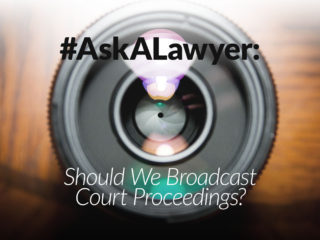In Labrosse v. Jones, the Ontario Superior Court dismissed a summary judgment motion for a novel claim involving a plaintiff who suffered psychological injury upon hearing the aftermath of her daughter’s motor vehicle accident via telephone.
Facts
The claim arose from a motor vehicle collision that occurred in September 2014. The accident was a significant rear collision where the plaintiff’s daughter sustained physical injuries. The plaintiff was the owner of the vehicle the daughter was driving.
The statement of claim and affidavit evidence disclosed that the plaintiff listened to her daughter on the telephone acting in panic and attempting to deal with the aftermath of her accident. The plaintiff also overheard the at-fault defendant driver behaving in a threatening manner towards her daughter by preventing her from contacting the police or summoning aid.
The daughter suffered catastrophic injuries and the plaintiff was traumatized by what she heard over the phone. The plaintiff claimed that she did not realize she sustained significant psychological trauma until the fall of 2018 when she was officially diagnosed with a form of post-traumatic stress that affected her emotional symptoms, disrupted her sleep, reduced organizational capacity, reduced mental focus and caused changes in her mood. These impairments interfered with her ability to work and carry on normal activities of daily living.
In January 2019, over five years after the accident and more than two years after the first action in which she was an FLA claimant, the plaintiff launched a second action claiming damages for psychological injury as a result of the negligence of the defendants.
Issue
Whether the psychological injury sustained by the plaintiff as a consequence of being involved in the accident by telephone is actionable against the defendants and, if so, whether the action is barred by the Limitations Act.
Analysis
i) Principles of Negligence
The plaintiff submitted that the law already recognizes a duty of care towards bystanders and others that are physically present at an accident and suffer nervous shock. Therefore, this should extend to persons present at the scene by use of modern electronic technology. The defendant argued that such a duty of care does not extend to a family member who the accident victim calls for assistance.
The Court relied on Saadati v. Moorhead, the seminal Supreme Court decision, which made clear that a “duty of care depends upon a relationship and proximity analysis and that the robust application of the elements of the tort of negligence as articulated in Mustapha are sufficient to weed out unmeritorious claims.”
Therefore, the Court concluded that the “foreseeability analysis at either the duty of care stage or at the remoteness of damages stage in a novel case may require nuanced findings of fact that are genuine issues to be resolved at trial.”
As such, the evidence before the Court at the motion was sufficient to establish that there were facts which could lead to a finding of liability. The plaintiff attempted to assist her daughter in the aftermath of her accident and was diagnosed with significant post-traumatic psychological injury as a reaction to what she heard over the phone at the accident scene. While success on this action is not guaranteed, the Court affirmed that the “test on a summary judgement motion is not judicial skepticism.”
ii) Limitation Period
With respect to the limitation issue, the Court concluded while there is a distinct possibility that a court might conclude that the plaintiff could have recognized the claim earlier, the defendant could not prove this conclusively at this stage. Therefore, based on the evidentiary record before the court at the time of the motion, the court stated that the date of discovery is a genuine issue to be determined at trial.
Implications
Dismissing an action through a motion for summary judgment is rare. Even novel claims of negligence that simply have a chance of success will be allowed to proceed.













